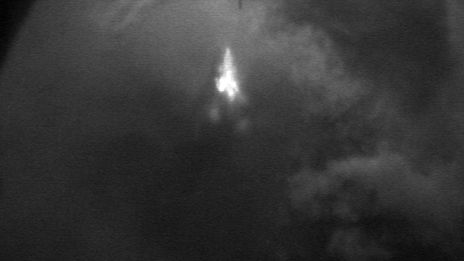Armagh Observatory eyes automation move
- Published
Shane Kelly has been recording the weather in Armagh for 18 years
The end may be in sight for one of the world's longest-running series of manual weather observations.
After more than 200 years of tradition, Armagh Observatory is looking at moving to automation.
In a world of changing climate and weather, it is perhaps comforting to know the way we log those changes progresses only slowly.
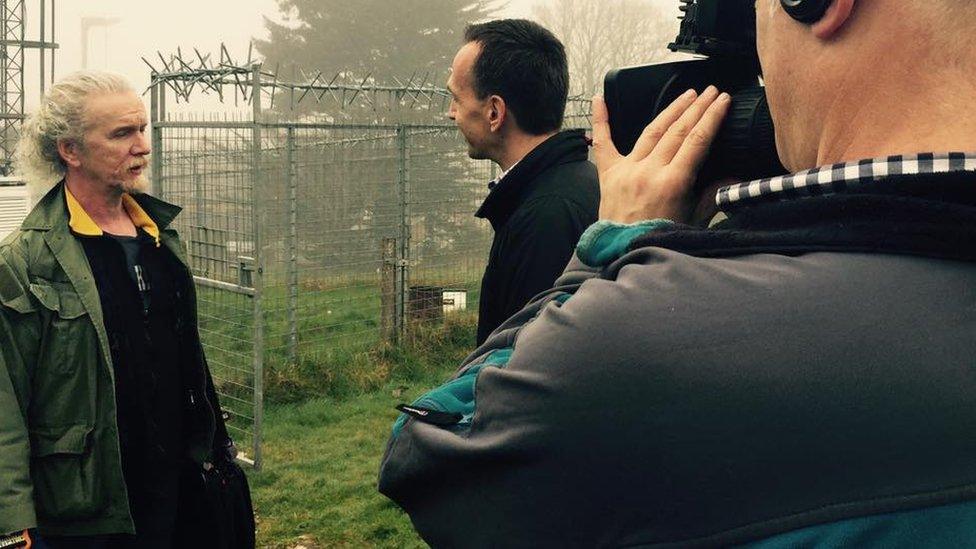
Shane Kelly says he feels a responsibility to keep the tradition of manual observations
For 18 years, Shane Kelly has been taking weather observations at 09:00 every day at the observatory in Northern Ireland.
Daily weather readings taken manually at the site have advanced over time to include a full range of meteorological data including figures for temperature, wind, rainfall and sunshine.
Unbroken for 200 years
Shane feels the responsibility of keeping it going.
"Seeing as it's been unbroken for 200 years, I don't want to break that up and become infamous," he told the BBC.
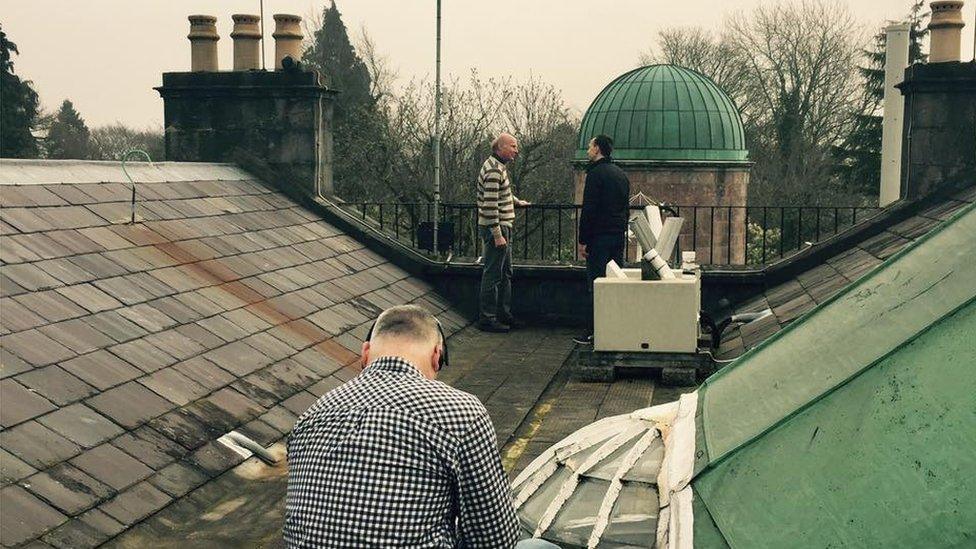
Nick Miller interviews observatory director Michal Burton on the roof of the Georgian building
Possibly the biggest change in all those years is now on the cards as work has begun to automate the process.
That means one day manual readings taken by the likes of Shane will come to an end.
But Mr Kelly worries about the reliability of purely automated weather stations.
"Automatic weather stations break down and you might lose days and days of data until it is fixed," he said.
Warmer out than in
Observatory Director Michael Burton showed me the archives that show how it all began, with the very first weather readings - taken in Fahrenheit, of course - from December 1794.
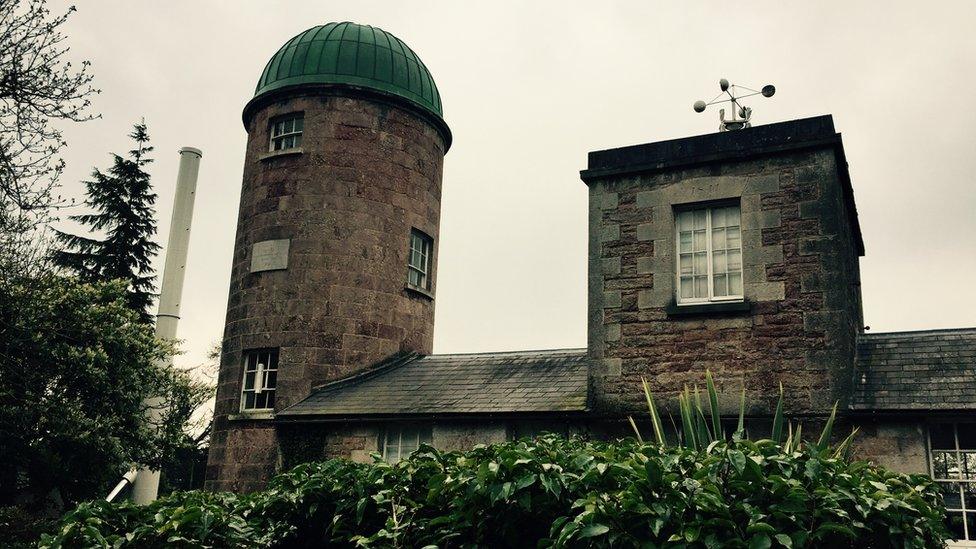
Weather observations began at the observatory in 1794
At first it was just the pressure and temperature that was recorded - which interestingly, showed it was warmer outside than inside,
The observations only became a permanent daily fixture in the summer of 1795, said Mr Burton.
"For the first few months, the readings were quite sporadic with some days missing so really, initially, this was just an experiment in learning how to measure the weather," he said.
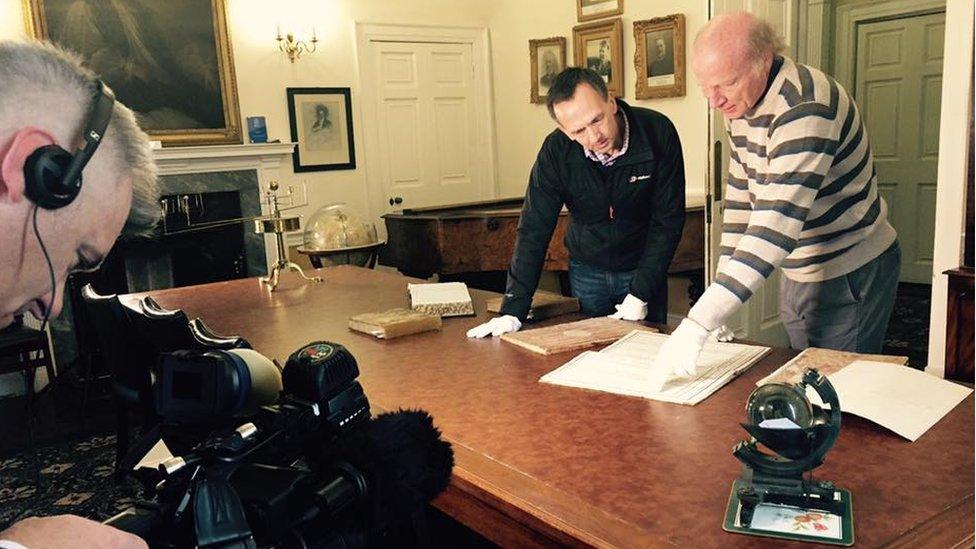
Michael Burton delves into the earliest records
Over time, additional meteorological data has expanded these records along with references to any significant weather events, such as severe winds and storms.
Alongside an automatic weather station, Shane Kelly hopes that some manual, daily readings can continue.
Of course, the time will come when he will not be doing them.
At least he can look forward to a Saturday morning lie-in!
You can see more of Nick Miller on Weather World on BBC News Channel BBC on 14 April (09:30 and 1630). It is then repeated on 15 April (00:30, 13:30 and 20:30) and 16 April (16:30)
- Published27 April 2015
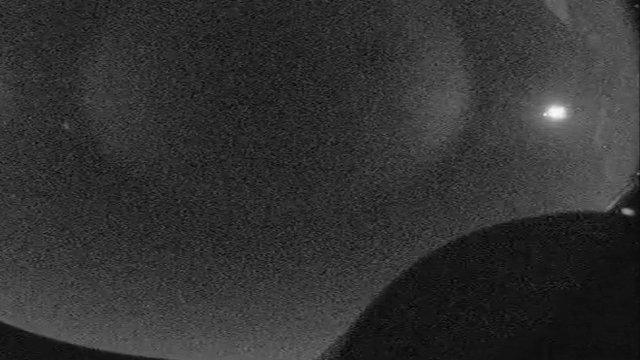
- Published31 July 2013
